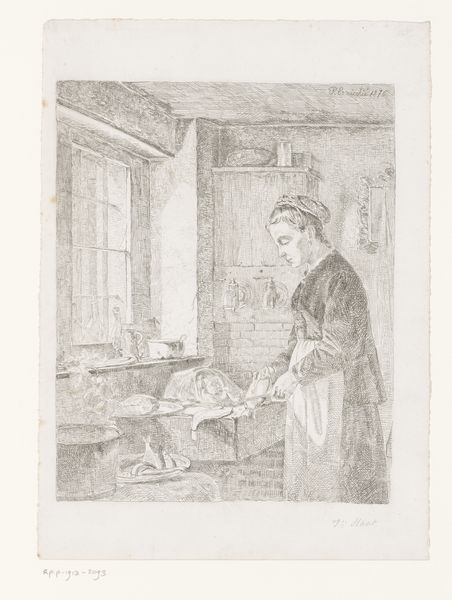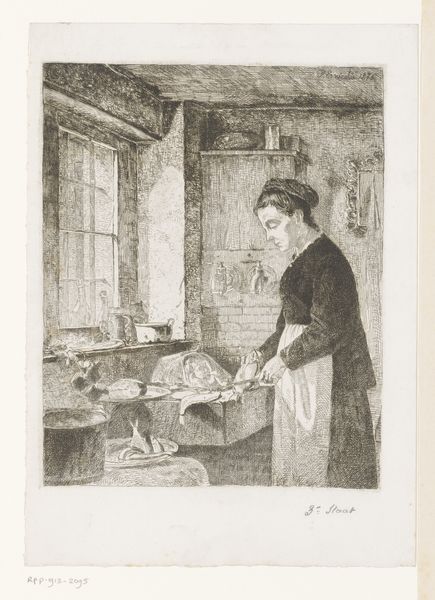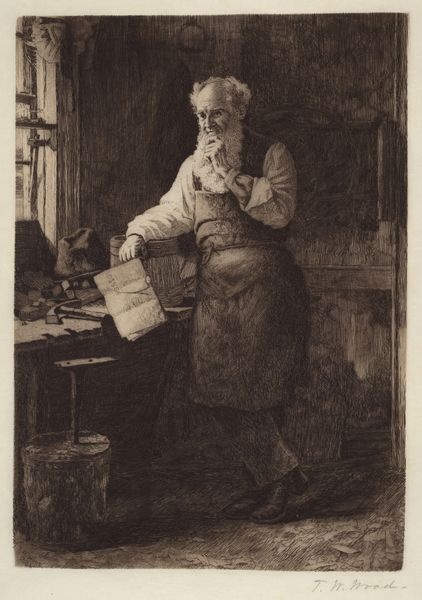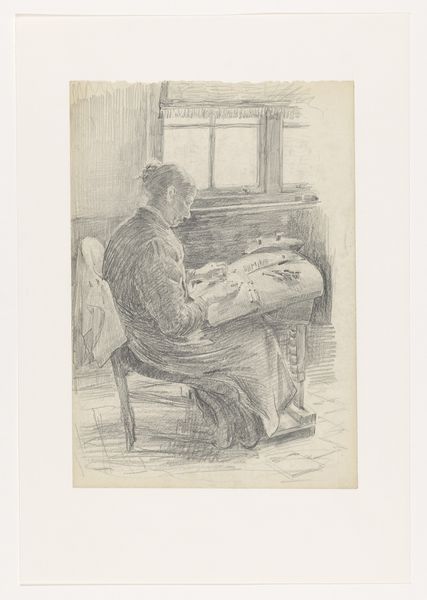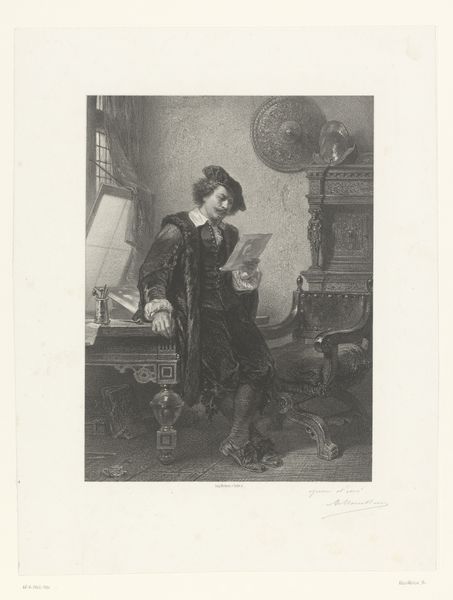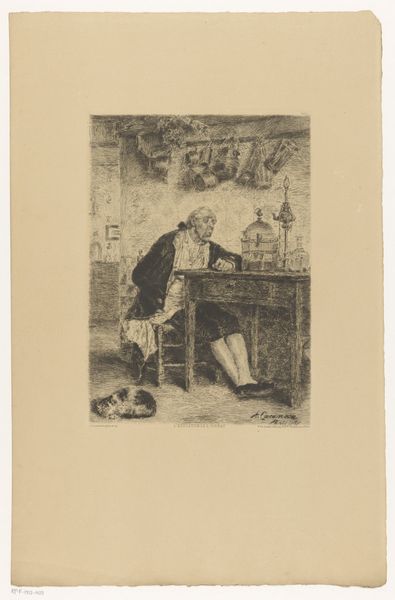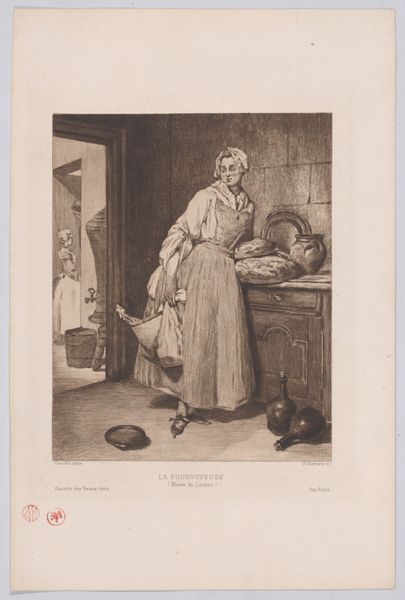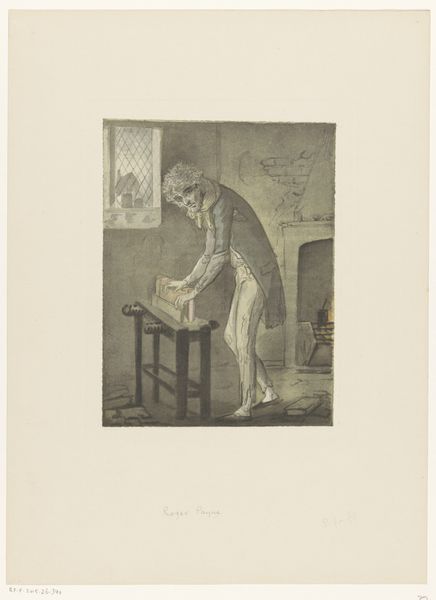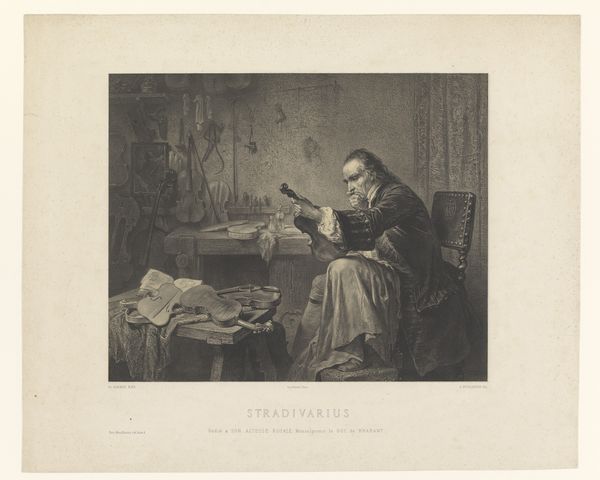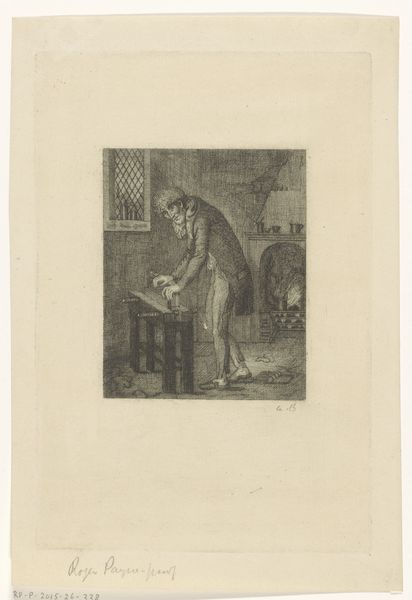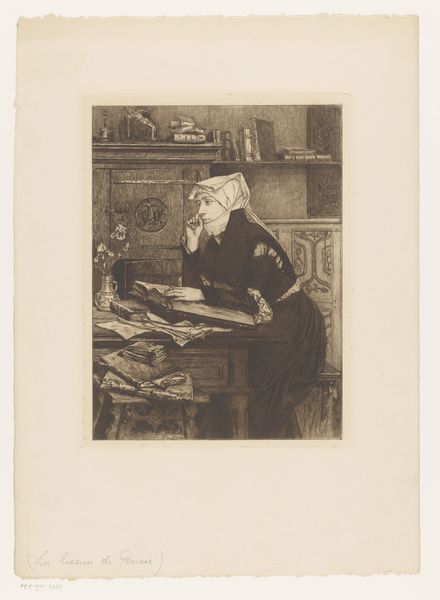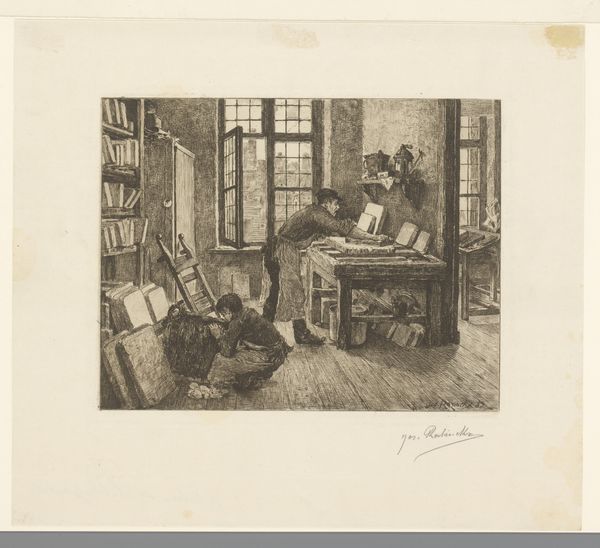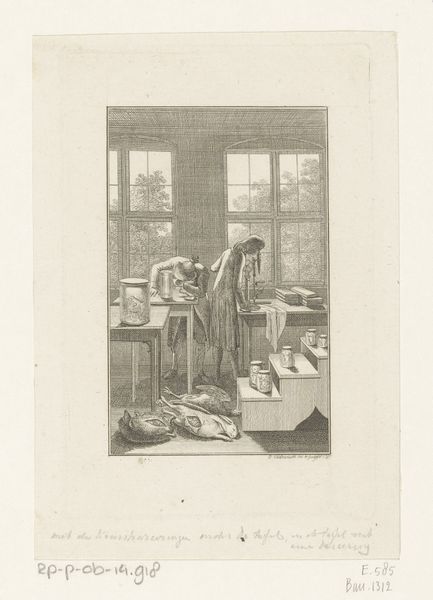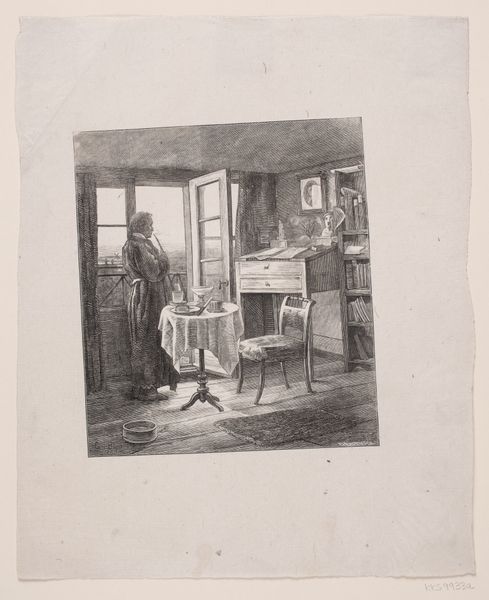
print, etching
# print
#
etching
#
genre-painting
#
realism
Dimensions: height 380 mm, width 282 mm
Copyright: Rijks Museum: Open Domain
Curator: Look at the intense focus captured in this print by Paul Emile Nicolie. Titled "Vrouw bereidt vis in een keuken", or "Woman preparing fish in a kitchen", it’s an etching dating back to 1876 and held in the Rijksmuseum collection. Editor: My first impression is the overwhelming ordinariness, yet a strangely compelling silence hangs over this simple domestic scene. Curator: Absolutely. The power of realism here lies in its straightforward depiction of everyday life, the genre-painting stripped down to its essentials. The etching medium allows for capturing minute details that reflect social history. The setting could be almost any modest home. Editor: And there are centuries of associations to unravel just there. Water, the fish, the unseen ocean and fisherman...the eternal mother and the kitchen as the very seat of care and sustenance. It feels deeply archetypal. Curator: Indeed. Nicolie places her as central and vital in a social context. Notice the way the light falls on her, almost elevating her simple chore to the symbolic level of some ancient goddess feeding her tribe. Editor: Yes, that downcast gaze concentrates all that cultural weight and generational care within the gesture of cleaning. Does the choice of fish add something else? I notice the way they lie on the counter. Curator: It is entirely plausible, in its role of traditional sustenance it also serves as a subtle class marker, perhaps subtly underlining her working-class identity through the quotidian tasks portrayed. Foodways say a lot about identity. Editor: A point well-taken, and yet beyond its socioeconomic import, there's that recurring and undeniably evocative symbol of the fish as a sign for a whole host of associations ranging from faith to fertility... I suspect both spheres play within our understanding of the image. Curator: Precisely! Nicolie’s etching gives us an insightful snapshot into 19th-century domesticity while prompting considerations about what it means to fulfill simple responsibilities in society. Editor: It does bring forth the idea of a universal gesture transcending any cultural barrier - and invites meditation about daily acts shaping history itself.
Comments
No comments
Be the first to comment and join the conversation on the ultimate creative platform.
